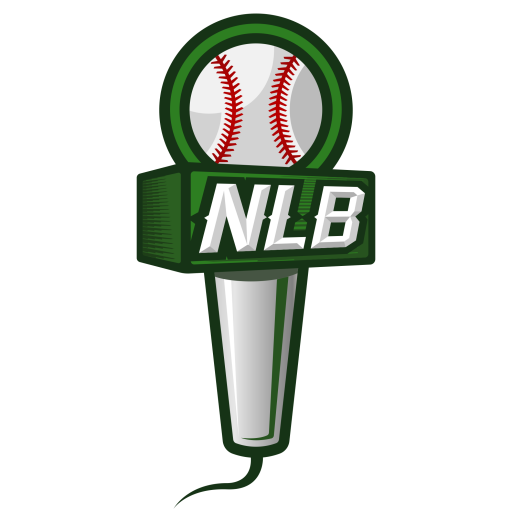Eat Well to Play Well
Your body needs the energy from food to function in your day-to-day activities, to grow, and to build the strength and skills needed to play ball and to play it well. Calories are converted to energy, but not all calories are created equal!
The best fuel for an active ballplayer comes from complex carbohydrates, like fruits, vegetables, and whole grains. Pair this with protein – meat, fish, eggs and nuts – for building and repairing muscle. (Muscle tears naturally as you work to strengthen it with exercise. It’s part of the natural process.) Top this off with healthy fats from fish, nuts, avocados and vegetable oils, which are especially important for endurance.
Ballplayers need to maintain energy levels and concentration both in training and at game time. Timing meals and snacks across the day improves nutrient absorption, helps you to manage your appetite, and maximizes fueling and recovery, training and performance. A well-balanced diet with minimal sweets and sufficient hydration prepares your body to be at its best as you work to take your game to the next level!
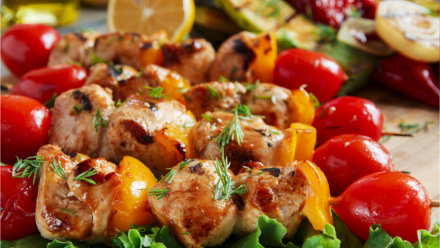
Training diet
Baseball training involves strength, speed, skills and weight training exercises. Your nutritional goals are to fuel this training effort on top of your body’s existing growth needs. Specific nutrition needs will vary based on age, body type, position played and training regimen.
The best fuel for an active ballplayer comes from complex carbohydrates, like fruits, vegetables, and whole grains. Half your plate should be fruits and vegetables. The more intense the color of your vegetables, the better they are for you. Dark green, red, and orange vegetables have high levels of the nutrients, vitamin C, calcium, and fiber that you need. Whole grains – multi-grain bread, brown rice, whole grain cereals or oatmeal – will give your body more lasting energy than sugary cereals and white bread.
Pair this with protein – lean meat, chicken, turkey, fish, eggs, beans and nuts – for building and repairing muscle. (Muscle tears naturally as you work to strengthen it with exercise. It’s part of the natural process.) Protein is also key to supporting the growth that’s happening during the years from 10 to 20.
Dairy is important for building strong bones. Look to fat-free or low-fat milk and milk products like cottage cheese and fat-free or low-fat yogurt.
Top this off with healthy fats from fish, nuts, avocados and vegetable oils, which are especially important for endurance.
Your game-day nutrition is very much impacted by the quality of your nutrition during the week!
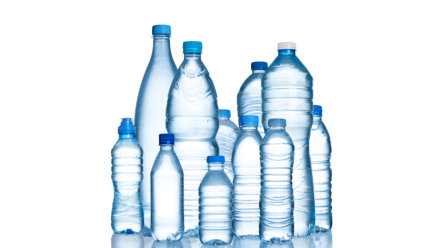
Hydration/Fluid Needs
Hydration – fluid intake – is a critical element in peak performance. Baseball requires fast-paced running, quick decision-making, concentration, coordination and ball skills. Research shows that dehydration can increase skill errors, reduce concentration and impair speed and co-ordination.
It is important to start any exercise session well hydrated. This requires drinking regularly throughout the day leading up to training programs or competition. Be sure to have a drink with all meals and snacks. Give conscious thought to consuming fluids before, during, and after every session.
Since baseball is played outdoors and will be played over several hours, it is especially important for players to drink regularly throughout a game to maintain good hydration levels.
Additional Hints
Don’t skip meals! Your body functions most effectively when its energy input is spaced over the course of the day.
Plan ahead! The snacks and beverages available at the ball park may not be the best options. Pack your own energy fuel.
Be consistent! It takes time to build muscle and endurance. That means good nutrition every day, paired with a good exercise and skills training program.
Get enough sleep! You need 8-10 hours of sleep to be sharp, energized and ready for your school and sports activities.
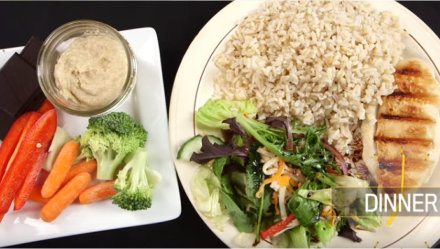
Before the Game
Going into a game, you want to be well-fueled and well-hydrated. This can be a challenge since baseball games extend for several hours and there is travel time to get to and from the game venue.
Most players benefit from a meal around 3 to 4 hours before the start of a game. This meal should contain mostly carbohydrates (fruits, vegetables and whole grain) for continuing fuel supply as well as fluids for hydration. A small amount of protein can help to prevent hunger during the game. An extra carbohydrate-based snack 1-2 hours before the game can top off your fuel stores.
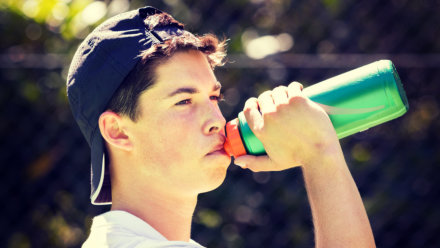
During the Game
Game day weather can vary drastically across a season and games themselves will vary in length. It’s important to think ahead and bring snacks and beverages that are appropriate to the day’s circumstances.
The most important concern is to stay hydrated. You’re working hard and sweating out the liquid you consumed during your pregame prep. On hot days, the effect is multiplied. Keep your water bottle handy and catch a few swallows each time you return to the dugout. If your play is particularly high energy, you may benefit from a sports or electrolyte enhanced drink.
For longer games, it’s good to also renew the fuel that’s keeping your brain sharp and your muscles ready to respond. Tuck a good energy snack, like fresh fruit or a granola bar, in your bag. Stay away from candy and donuts or other sweets. These dump sugar into your system too quickly and you’ll end up crashing and feeling tired and even more hungry. You want complex carbohydrates that will give your body a continuous stream of energy as the game goes on.

Post Game/Post Practice
The main goals for recovery after training or games are to replace your fuel stores, give your body what it needs to repair muscles and rehydrate, rehydrate, rehydrate!
Post game/post practice meals and snacks should contain complex carbohydrates for fuel restoration, some protein for muscle repair and development and plenty of fluids and electrolytes to replace sweat losses. Your recovery meal or snack should be consumed soon after your exercise period, especially when you are training or competing more than once in a day.
This is general advice. Every player’s needs are different, so you may wish to consult a sports dietician for a food plan that is tailored to you.

